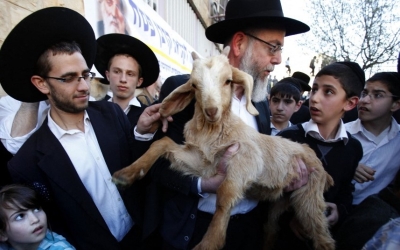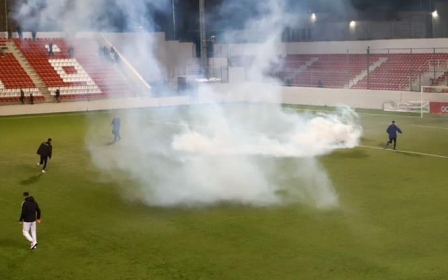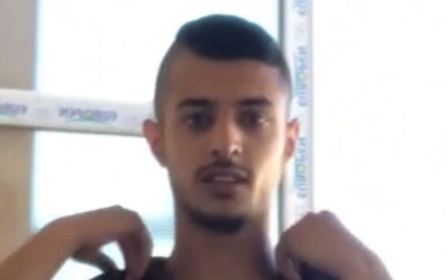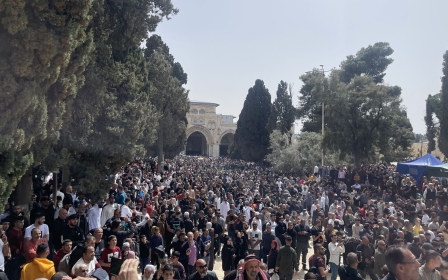Palestinian killed after West Bank car-ramming as violence rises
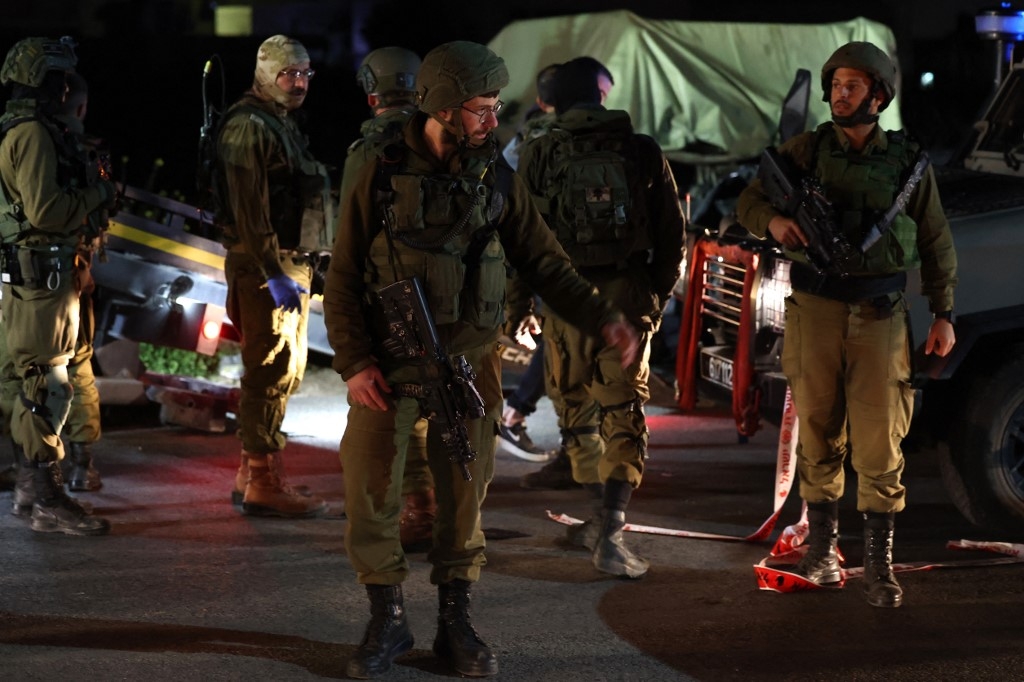
A suspected assailant was killed by Israeli soldiers after a West Bank car-ramming on Saturday, the Israeli army said, in an escalation that threatened to end a relative lull during the Muslim holy month of Ramadan so far.
The Palestinian's death came less than 24 hours after an Arab-Israeli allegedly snatched a gun from a police officer at Jerusalem's Al-Aqsa Mosque compound and fired it before being shot dead.
The army said a "terrorist" had conducted a "ramming attack adjacent to the town of Beit Ummar" before being neutralised, with a spokesperson confirming to AFP the presumed assailant's death.
Magen David Adom medics said three men had been taken to hospitals in Jerusalem with serious, moderate and light wounds.
In a statement, the Palestinian Authority identified the dead man as Mohammed Baradyah, 23.
Early on Saturday, police said they shot dead 26-year-old medical student Muhammad al-Osaibi, a resident of the Bedouin village of Hura in southern Israel.
According to police, Osaibi had snatched a gun from an officer and fired it at other police officers close to the nearby Chain Gate (Bab al-Silsela), an access point to the Al-Aqsa mosque compound in the Old City of Israeli-annexed east Jerusalem.
Eyewitnesses allege that the Israeli officers had assaulted a Palestinian woman who was attempting to re-enter the mosque.
Passers-by reported hearing gunfire, and an AFP photographer saw scores of police deployed in the Old City at around 1:00 am (2200 GMT on Friday).
Osaibi's family has disputed the police account of his death and demanded to see CCTV footage, Israeli media reported.
Raam, the Israeli parliament's Islamist party, rejected the police account of events, noting in a Facebook post the claims from "witnesses" who said Osaibi came to aid a woman who was being harassed by police. It called for an investigation.
'Execution'
The umbrella organisation representing Israel's Palestinian citizens announced a "general strike and day of mourning" on Sunday following the "execution" of Osaibi.
Police, meanwhile, were standing by their original version of events and issued another statement Saturday afternoon saying that the site of the attack was not covered by surveillance cameras.
The shooting occurred hours after tens of thousands of Palestinians had packed the Al-Aqsa mosque compound for the second Friday prayers of Ramadan, which had passed off peacefully despite fears of bloodshed during the holy month.
Israeli police said more than 100,000 faithful had gathered to pray at Islam's third holiest site, built on what Jews call the Temple Mount, Judaism's holiest site.
More than 2,000 police officers had been deployed across the city.
The Jordanian body which administers the mosque compound put the number of worshippers at 250,000.
An upsurge in Israeli raids in the occupied West Bank since the beginning of the year has raised fears of bloodshed during Ramadan.
Since the start of the year, Israeli forces have killed 88 Palestinians, including militants and civilians, and one Palestinian Israeli.
Fourteen Jewish Israelis, including members of the security forces and civilians, and one Ukrainian have been killed over the same period, according to a tally based on official sources from both sides.
Heightened security
The heightened security comes ahead of the Jewish holiday Passover, which will start on 5 April and last for a week.
Israeli settlers are set to storm the mosque in large numbers to mark the holiday at a time when Palestinians observing the holy of month of Ramadan usually fill the area.
Some settlers have called on authorities to allow them to conduct ritual animal slaughter in the courtyard of the mosque, which risks provoking Palestinians.
Al-Aqsa Mosque is the third-holiest site in Islam and an area where non-Muslim prayers and rituals are forbidden according to decades-long international agreements.
Israeli groups, in coordination with police, have long violated the delicate arrangement and facilitated unsolicited visits to the site and performed prayers and religious rituals.
Israel's control of East Jerusalem, including the Old City, violates several principles under international law, which stipulates that an occupying power has no sovereignty in the territory it occupies and cannot make any permanent changes there.
Middle East Eye propose une couverture et une analyse indépendantes et incomparables du Moyen-Orient, de l’Afrique du Nord et d’autres régions du monde. Pour en savoir plus sur la reprise de ce contenu et les frais qui s’appliquent, veuillez remplir ce formulaire [en anglais]. Pour en savoir plus sur MEE, cliquez ici [en anglais].


